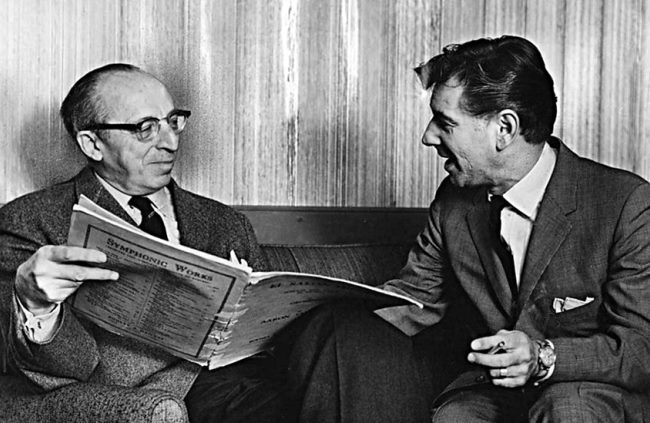Roger Sessions, Symphony No. 2
by Byron Adams
Born December 28, 1896 in Brooklyn, New York
Died March 16, 1985 in Princeton, New Jersey
Composed in 1944–46
Premiered on January 9, 1947 by the San Francisco Symphony Orchestra conducted by Pierre Monteaux
Performance Time: Approximately 26 minutes
Roger Huntington Sessions was born in Brooklyn and raised in Hadley, Massachusetts. His ancestors included Samuel Huntington, one of the signers of the Declaration of Independence, and the Rt. Rev. Dan Huntington, a noted Episcopalian Bishop of Central New York. Sessions noted, “I come from an old family and that is undoubtedly part of my life, because I realized that with that background I always had a basic sense of social security; I mean a security in American society.” This august pedigree extended to his education as well: Sessions studied at Harvard University, at Yale University under Horatio Parker, and privately with Ernest Bloch. Sessions was an immensely influential composition teacher, and he served on the faculties of Smith College; Princeton University; the University of California, Berkeley; and the Julliard School, among others. During his lifetime, Sessions received two Guggenheim Fellowships, a Rome Prize in 1926, and two Pulitzer Prizes for Music. He was also elected to the National Institute of Arts and Letters, the American Academy of Arts and Letters, and the American Academy of Arts and Sciences.
William W. Austin wrote in handsome tribute to Sessions: “In all his works the vast range of his craft and the intensity of his thought are evident. . . . For those capable of appreciating his technique, the music is deeply rewarding.” One of the most rewarding of Sessions’ scores is his Symphony No. 2 (1946), which was commissioned by Columbia University’s Ditson Fund. It is touchingly dedicated “To the Memory of Franklin Delano Roosevelt.” An unusual aspect of the orchestration is the prominence of both piano and harp. Cast in four movements, the symphony includes a short, satirical scherzo as the second movement and a kaleidoscopic finale. Its heart, however, is found in its brooding slow movement. In his trenchant article on Sessions, Joseph Kerman singled out this movement for special commendation: “The sombre crisis before the ending (but not the ending itself) remains in mind as the focus of the whole symphony.”
Byron Adams is a Professor of Musicology at the University of California, Riverside.

